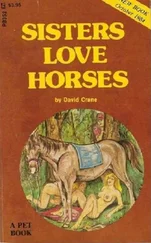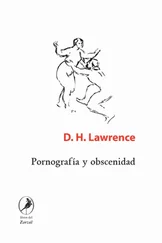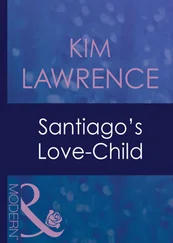David Lawrence - Women in Love
Здесь есть возможность читать онлайн «David Lawrence - Women in Love» весь текст электронной книги совершенно бесплатно (целиком полную версию без сокращений). В некоторых случаях можно слушать аудио, скачать через торрент в формате fb2 и присутствует краткое содержание. Год выпуска: 2003, Жанр: Классическая проза, Современные любовные романы, на английском языке. Описание произведения, (предисловие) а так же отзывы посетителей доступны на портале библиотеки ЛибКат.
- Название:Women in Love
- Автор:
- Жанр:
- Год:2003
- ISBN:нет данных
- Рейтинг книги:3 / 5. Голосов: 1
-
Избранное:Добавить в избранное
- Отзывы:
-
Ваша оценка:
- 60
- 1
- 2
- 3
- 4
- 5
Women in Love: краткое содержание, описание и аннотация
Предлагаем к чтению аннотацию, описание, краткое содержание или предисловие (зависит от того, что написал сам автор книги «Women in Love»). Если вы не нашли необходимую информацию о книге — напишите в комментариях, мы постараемся отыскать её.
Women in Love — читать онлайн бесплатно полную книгу (весь текст) целиком
Ниже представлен текст книги, разбитый по страницам. Система сохранения места последней прочитанной страницы, позволяет с удобством читать онлайн бесплатно книгу «Women in Love», без необходимости каждый раз заново искать на чём Вы остановились. Поставьте закладку, и сможете в любой момент перейти на страницу, на которой закончили чтение.
Интервал:
Закладка:
The suggestion of primitive art was their refuge, and the inner mysteries of sensation their object of worship. Art and Life were to them the Reality and the Unreality.
'Of course,' said Gudrun, 'life doesn't REALLY matter—it is one's art which is central. What one does in one's life has PEU DE RAPPORT, it doesn't signify much.'
'Yes, that is so, exactly,' replied the sculptor. 'What one does in one's art, that is the breath of one's being. What one does in one's life, that is a bagatelle for the outsiders to fuss about.'
It was curious what a sense of elation and freedom Gudrun found in this communication. She felt established for ever. Of course Gerald was BAGATELLE. Love was one of the temporal things in her life, except in so far as she was an artist. She thought of Cleopatra—Cleopatra must have been an artist; she reaped the essential from a man, she harvested the ultimate sensation, and threw away the husk; and Mary Stuart, and the great Rachel, panting with her lovers after the theatre, these were the exoteric exponents of love. After all, what was the lover but fuel for the transport of this subtle knowledge, for a female art, the art of pure, perfect knowledge in sensuous understanding.
One evening Gerald was arguing with Loerke about Italy and Tripoli. The Englishman was in a strange, inflammable state, the German was excited. It was a contest of words, but it meant a conflict of spirit between the two men. And all the while Gudrun could see in Gerald an arrogant English contempt for a foreigner. Although Gerald was quivering, his eyes flashing, his face flushed, in his argument there was a brusqueness, a savage contempt in his manner, that made Gudrun's blood flare up, and made Loerke keen and mortified. For Gerald came down like a sledge-hammer with his assertions, anything the little German said was merely contemptible rubbish.
At last Loerke turned to Gudrun, raising his hands in helpless irony, a shrug of ironical dismissal, something appealing and child-like.
'Sehen sie, gnadige Frau-' he began.
'Bitte sagen Sie nicht immer, gnadige Frau,' cried Gudrun, her eyes flashing, her cheeks burning. She looked like a vivid Medusa. Her voice was loud and clamorous, the other people in the room were startled.
'Please don't call me Mrs Crich,' she cried aloud.
The name, in Loerke's mouth particularly, had been an intolerable humiliation and constraint upon her, these many days.
The two men looked at her in amazement. Gerald went white at the cheek-bones.
'What shall I say, then?' asked Loerke, with soft, mocking insinuation.
'Sagen Sie nur nicht das,' she muttered, her cheeks flushed crimson. 'Not that, at least.'
She saw, by the dawning look on Loerke's face, that he had understood. She was NOT Mrs Crich! So-o-, that explained a great deal.
'Soll ich Fraulein sagen?' he asked, malevolently.
'I am not married,' she said, with some hauteur.
Her heart was fluttering now, beating like a bewildered bird. She knew she had dealt a cruel wound, and she could not bear it.
Gerald sat erect, perfectly still, his face pale and calm, like the face of a statue. He was unaware of her, or of Loerke or anybody. He sat perfectly still, in an unalterable calm. Loerke, meanwhile, was crouching and glancing up from under his ducked head.
Gudrun was tortured for something to say, to relieve the suspense. She twisted her face in a smile, and glanced knowingly, almost sneering, at Gerald.
'Truth is best,' she said to him, with a grimace.
But now again she was under his domination; now, because she had dealt him this blow; because she had destroyed him, and she did not know how he had taken it. She watched him. He was interesting to her. She had lost her interest in Loerke.
Gerald rose at length, and went over in a leisurely still movement, to the Professor. The two began a conversation on Goethe.
She was rather piqued by the simplicity of Gerald's demeanour this evening. He did not seem angry or disgusted, only he looked curiously innocent and pure, really beautiful. Sometimes it came upon him, this look of clear distance, and it always fascinated her.
She waited, troubled, throughout the evening. She thought he would avoid her, or give some sign. But he spoke to her simply and unemotionally, as he would to anyone else in the room. A certain peace, an abstraction possessed his soul.
She went to his room, hotly, violently in love with him. He was so beautiful and inaccessible. He kissed her, he was a lover to her. And she had extreme pleasure of him. But he did not come to, he remained remote and candid, unconscious. She wanted to speak to him. But this innocent, beautiful state of unconsciousness that had come upon him prevented her. She felt tormented and dark.
In the morning, however, he looked at her with a little aversion, some horror and some hatred darkening into his eyes. She withdrew on to her old ground. But still he would not gather himself together, against her.
Loerke was waiting for her now. The little artist, isolated in his own complete envelope, felt that here at last was a woman from whom he could get something. He was uneasy all the while, waiting to talk with her, subtly contriving to be near her. Her presence filled him with keenness and excitement, he gravitated cunningly towards her, as if she had some unseen force of attraction.
He was not in the least doubtful of himself, as regards Gerald. Gerald was one of the outsiders. Loerke only hated him for being rich and proud and of fine appearance. All these things, however, riches, pride of social standing, handsome physique, were externals. When it came to the relation with a woman such as Gudrun, he, Loerke, had an approach and a power that Gerald never dreamed of.
How should Gerald hope to satisfy a woman of Gudrun's calibre? Did he think that pride or masterful will or physical strength would help him? Loerke knew a secret beyond these things. The greatest power is the one that is subtle and adjusts itself, not one which blindly attacks. And he, Loerke, had understanding where Gerald was a calf. He, Loerke, could penetrate into depths far out of Gerald's knowledge. Gerald was left behind like a postulant in the ante-room of this temple of mysteries, this woman. But he Loerke, could he not penetrate into the inner darkness, find the spirit of the woman in its inner recess, and wrestle with it there, the central serpent that is coiled at the core of life.
What was it, after all, that a woman wanted? Was it mere social effect, fulfilment of ambition in the social world, in the community of mankind? Was it even a union in love and goodness? Did she want 'goodness'? Who but a fool would accept this of Gudrun? This was but the street view of her wants. Cross the threshold, and you found her completely, completely cynical about the social world and its advantages. Once inside the house of her soul and there was a pungent atmosphere of corrosion, an inflamed darkness of sensation, and a vivid, subtle, critical consciousness, that saw the world distorted, horrific.
What then, what next? Was it sheer blind force of passion that would satisfy her now? Not this, but the subtle thrills of extreme sensation in reduction. It was an unbroken will reacting against her unbroken will in a myriad subtle thrills of reduction, the last subtle activities of analysis and breaking down, carried out in the darkness of her, whilst the outside form, the individual, was utterly unchanged, even sentimental in its poses.
But between two particular people, any two people on earth, the range of pure sensational experience is limited. The climax of sensual reaction, once reached in any direction, is reached finally, there is no going on. There is only repetition possible, or the going apart of the two protagonists, or the subjugating of the one will to the other, or death.
Читать дальшеИнтервал:
Закладка:
Похожие книги на «Women in Love»
Представляем Вашему вниманию похожие книги на «Women in Love» списком для выбора. Мы отобрали схожую по названию и смыслу литературу в надежде предоставить читателям больше вариантов отыскать новые, интересные, ещё непрочитанные произведения.
Обсуждение, отзывы о книге «Women in Love» и просто собственные мнения читателей. Оставьте ваши комментарии, напишите, что Вы думаете о произведении, его смысле или главных героях. Укажите что конкретно понравилось, а что нет, и почему Вы так считаете.











